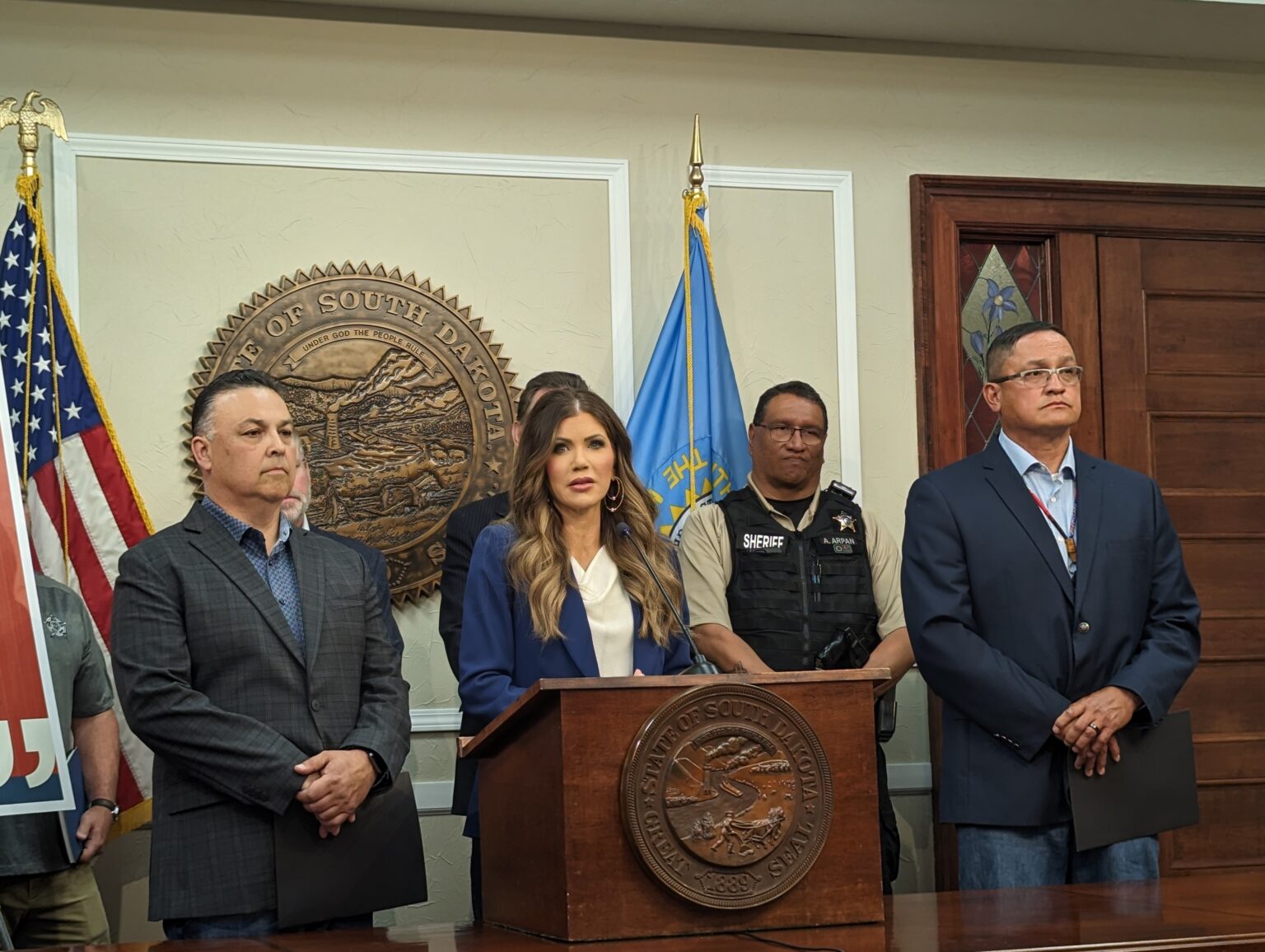Senator Alex Padilla Forcefully Removed From Homeland Security Press Conference
During a press conference conducted by Homeland Security Secretary Kristi Noem in Los Angeles, Democratic Senator Alex Padilla from California made headlines when he was hastily escorted and restrained by federal agents. As he was led out, he noted his position and further asserted that he had inquiries to make from the secretary.
In spite of the incident, Noem proceeded with the conference, mentioning her lack of prior knowledge about Padilla’s intentions to participate or his request for dialogue. She pledged to have a follow-up discussion with the senator to understand the essence of his concerns better. She also acknowledged the impropriety of the situation, aligning with the general public sentiment.
As the head of Immigration and Customs Enforcement, Noem has been in the spotlight due to the agency’s mounting operations in the metropolis. These police actions triggered a wave of citywide demonstrations. Consequently, President Donald Trump responded by asserting authority over the California National Guard and deploying Marines to the region.
The news of Noem’s press event came to Padilla while he was stationed in the very same facility for another briefing. Feeling disappointed with the intensifying partisan discourse surrounding Noem’s actions, Padilla chose to intrude on the conference with the intention of posing his own inquiries. His interference, however, resulted in him being removed by several agents.
The incident quickly divided opinions along partisan lines. Governor of California, Gavin Newsom, publically questioned the implications of such forceful action against a US senator, indirectly warning the public of potential misuse of power. On a similar line, Senator Elizabeth Warren marked the episode as a deeply distressing chapter in the country’s political annals.
In addition to this, Senate Minority Leader Chuck Schumer made his disapproval clear on the Senate floor, arguing that the treatment meted out to Senator Padilla surpassed all limits of propriety. Unsurprisingly, the incident triggered a slew of responses from various quarters of genuine disbelief and concern.
In contrast, Karoline Leavitt, White House Press Secretary, cast Padilla’s interruption as a disturbance. Similarly, Homeland Security’s spokesperson, Tricia McLaughlin, was quick to label the episode as an instance of ill-mannered political theatrics. She further clarified that the officers, perceiving him as a potential risk, acted accordingly.
Alex Padilla’s journey in public service started back in 1999 with his election to the Los Angeles City Council. Post serving two legislative periods in the California State Senate, he made history in 2014 as the first Latino to assume the office of the California Secretary of State.
In the aftermath of Kamala Harris’s elevation to the role of Vice President, Padilla was appointed to fill her senatorial spot. Subsequently, he secured his position by winning the 2022 re-election. It’s worth noting how his career has been marked by key successes in spite of the complex challenges experienced during his tenure.
Overall, the incident involving Senator Padilla’s forceful removal from the press conference reflects a contentious undercurrent in present-day American politics. It highlights the polarization of viewpoints, even on issues concerning the dignified treatment of a sitting senator, and suggests a complex era of American civic life.
In the wider context, the situation underscores the battles inherent in the democratic process, where the ideal of open dialogue sometimes comes into fierce conflict with security concerns and hierarchical protocol. It is a stark reminder of the challenges we face in our quest for a democratic space that balances respect for authority, freedom of speech, and citizens’ rights.
Incidentally, this episode also brings to light the ongoing strained interaction between federal law enforcement agencies and political figures. The traditionally measured boundaries seem to be shifting, painting a more volatile picture of such interactions. It signifies the urgency of addressing these concerns moving forward.
Despite the dramatic episode, Senator Padilla seems to have handled the situation with grace, further staking his public reputation on his commitment to his constituents, his willingness to ask tough questions, and his dogged refusal to let official protocol silence critical voices.
Yet, the issue remains a hotbed for debate. Do such stringent approaches dilute democracy, or are they essentials of order, necessary to prevent chaos in an increasingly volatile political environment? This question oversteps the incident itself, reaching into the democratic foundation of the American society.
Regardless, the incident renews focus on the need for a continued conversation around these concerns. Drawing clear distinguishing lines in this blurry domain of politics, rights, and protocols is an ongoing project, in the pursuit of a more robust democracy.

